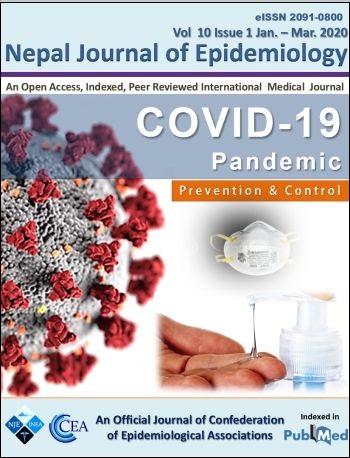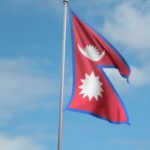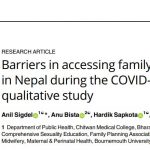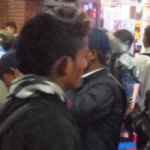Our editorial today in the Nepal Journal of Epidemiology highlights some of the key issues related to COVID-19 related to a low-income country such as Nepal [1]. There are various Public Health challenges to preventing the spread of COVID-19 in South Asia including Nepal. Learning from the COVID-19 outbreak in China, there will be slowdown of economic activity with damaged supply chains which impact upon the public health systems in Nepal. Moreover, there is limited coordination among different stakeholders in healthcare management with few policies in place for infection prevention and control, shortage of testing kits and medical supplies (shortages of masks, gloves), and poor reporting are major challenges to be tackled in case of the COVID-19.
All South Asian countries are vulnerable to a mass outbreak with high population density in cities which is challenging to create social distancing, made worse by generally poor hygiene and often low (health) literacy. Additionally, some COVID-19 cases remain asymptomatic; so it is difficult to predict the epidemic outbreak that may introduces further difficulty in diagnosis of newer cases. Finally, healthcare workers across the globe were infected at high rates during the MERS and SARS outbreaks, so Nepal has to initiate health workers’ training including simulation exercises to provide health staff with a clearer picture of the complexities and challenges associated with COVID-19 and containing potential outbreaks.
This editorial has a very different time span between submission and publication than the one highlighted last week on the BU Research Blog (see details here!). This COVID-19 editorial took exactly one month between submission and publication, the one mentioned last week took three-and-a-half years between submission and publication.
Prof. Edwin van Teijlingen
Reference:
- Asim, M., Sathian, B., van Teijlingen, E.R., Mekkodathil, A., Subramanya, S.H., Simkhada, P. (2020) COVID-19 Pandemic: Public Health Implications in Nepal, Nepal Journal of Epidemiology 10 (1): 817-820. https://www.nepjol.info/index.php/NJE/article/view/28269

 New Public Health publication on Nepal
New Public Health publication on Nepal New COVID-19 paper on Nepal
New COVID-19 paper on Nepal Migrant workers & mental health in Nepal
Migrant workers & mental health in Nepal










 New CMWH paper on maternity care
New CMWH paper on maternity care From Sustainable Research to Sustainable Research Lives: Reflections from the SPROUT Network Event
From Sustainable Research to Sustainable Research Lives: Reflections from the SPROUT Network Event REF Code of Practice consultation is open!
REF Code of Practice consultation is open! ECR Funding Open Call: Research Culture & Community Grant – Apply now
ECR Funding Open Call: Research Culture & Community Grant – Apply now ECR Funding Open Call: Research Culture & Community Grant – Application Deadline Friday 12 December
ECR Funding Open Call: Research Culture & Community Grant – Application Deadline Friday 12 December MSCA Postdoctoral Fellowships 2025 Call
MSCA Postdoctoral Fellowships 2025 Call ERC Advanced Grant 2025 Webinar
ERC Advanced Grant 2025 Webinar Update on UKRO services
Update on UKRO services European research project exploring use of ‘virtual twins’ to better manage metabolic associated fatty liver disease
European research project exploring use of ‘virtual twins’ to better manage metabolic associated fatty liver disease